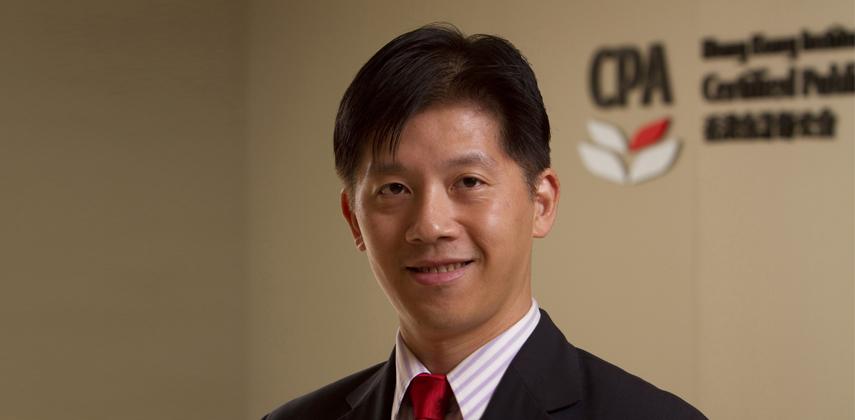As the impact of globalisation, new technology, complex regulation and Hong Kong’s evolving education landscape drive the need for change in the accounting sector, the HKICPA has responded by completing a comprehensive review of its qualifying process with a view to redesigning it to reflect the needs of employers, businesses and future accounting professionals.
Jonathan Ng Tai-sing, executive director at the HKICPA, says the proposed reforms to the CPA qualification programme (QP) will offer alternative pathways and greater flexibility for students with different educational backgrounds, including non-accounting graduates.
Ng explains that the most notable changes will be to the structure of the QP. It will include three progressive levels with 14 modules – associate level (10 modules), professional level (four modules) and a final capstone level examination.
The capstone exam, a new addition to the QP, is designed to develop students’ ability to integrate and apply their knowledge and skills in complex situations through workshops and a final examination. It will also include ethical training and self-reflective learning activities.
The proposed changes will ensure the QP remains internationally recognised by the world’s leading accountancy bodies of the Global Accounting Alliance.
According to Ng, it will also offer a common entry point which widens the scope for individuals coming from different education backgrounds. The proposed changes align with the government’s policy of supporting the progressive increase in post-secondary education opportunities and providing multiple education pathways for young people.
“Changes made to the QP will ensure we continue to train professional accountants with the skills, expertise and ethics that can uphold Hong Kong as an international business and financial centre,” Ng says.
Through these changes, the institute aims to provide a cohesive and relevant professional accounting education programme that can address the needs of the market and improve the employability of students and members.
As the HKICPA is the statutory licensing body for professional accountants in Hong Kong with more than 40,000 members, it is imperative that the QP not only trains aspiring accountants to meet current needs, but also adequately prepares them for the future, Ng says. Since its inception in 1999, and enhancement in 2010, the QP has evolved to be the most direct route – and the most popular programme of choice – for university students to qualify as a Hong Kong CPA.
Ng says the proposed changes are based on comprehensive research, including face-to-face meetings in Hong Kong and mainland China with a variety of stakeholders such as employers, academics, education providers, practitioners, students and graduates.
“When the consultation period closed at the end of August, a majority of respondents supported the suggested changes,” Ng says.
The new QP is set to be launched in phases, with the first phase likely to be introduced in 2019. “Given the significance of our QP, we will not launch the programme until all stakeholders are ready.”
This article appeared in the Classified Post print edition as QP review aims to future-proof accountants.


